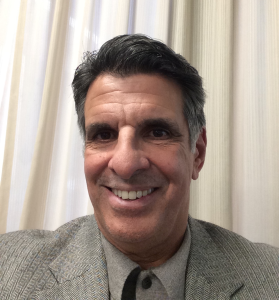 Do you check Twitter in bed when you should be sleeping?
Do you check Twitter in bed when you should be sleeping?
Peter Polos, Clinical Associate Professor in the department of Neuroscience at Seton Hall University, explores how using a smartphone in bed can lead to harmful effects during the daytime.
Dr. Peter Polos, MD, PhD, FCCP, FAASM, is a graduate of Louisiana State University School of Medicine in New Orleans, and is board certified in pulmonary and sleep medicine. He is Clinical Associate Professor, Dept. of Neuroscience, Seton Hall University School of Health and Medical Sciences; Attending Staff at the Sleep Medicine Division of the JFK Neuroscience Institute; and Founder and President of Global Clinical Consulting. His areas of expertise and interest include pulmonary and sleep medicine, clinical trial design and implementation, an active clinical practice and, of course, teaching. He holds a PhD in microbiology and immunology. Dr Polos is the author of over 30 publications and has presented clinical and scientific data at congresses and symposia around the world.
A fellow of the American College of Chest Physicians, Dr. Polos is a diplomate of the American Academy of Sleep Medicine, American Board of Internal Medicine-Pulmonary Diseases, and American Board of Internal Medicine-Internal Medicine. He is the former New Jersey Governor for and a member of the American College of Chest Physicians and is a member of the American Thoracic Society and the American Academy of Sleep Medicine.
Teen Smartphone Use At Night
In 2007 Apple introduced the iPhone. Smartphones, now ubiquitous, have engendered a number of cultural shifts— many of them positive. However, we have now come to realize that there are some downsides as well.
The current generation of teenagers have grown up with this technology at their fingertips. We wanted to get a better sense of what kind of impact these mobile devices are having on our kids.
We looked at the bedtime texting and smartphone use of a cohort of 3000 middle and high school students in Edison, New Jersey, aged 12 to 17. What we found was both startling and worrisome.
Adolescent texting and smartphone use at sleep time had harmful effects on many aspects of daytime functioning.
And the bottom line is this: the use of this technology at night by students correlates with academic underperformance, shorter sleep duration, insomnia, daytime sleepiness, and “eveningness,” a condition where a person feels most alert at night—an obvious concern for students taking daytime classes.
Nearly 62% of our students used their smartphones in some capacity after bedtime, 56.7% texted/tweeted/messaged in bed, and 20.8% awoke to texts. Over 25% reported inadequate sleep, defined as less than 6 hours per night.
Our study confirms that smartphone use at bedtime is very common in American adolescents
The effects of this behavior appear to have significant consequences on our youth. Sleep helps to consolidate and reinforce memory, improve cognition, and aid in physiologic maturation. Interruption or shortening of sleep leads to cumulative deficits in these and other areas.
Parents and educators should be more cognizant of the impact sleep deprivation is having on our youth. And based on our research, it would be reasonable to impose limitations on the use of smartphones in adolescents. This is an area where parent and child themselves can have a direct impact on improving their sleep quality and quantity.
https://www.youtube.com/watch?v=3ZOvQm7puuM&feature=youtu.be


Comments
One response to “Peter Polos, Seton Hall University – Teen Smartphone Use At Night”